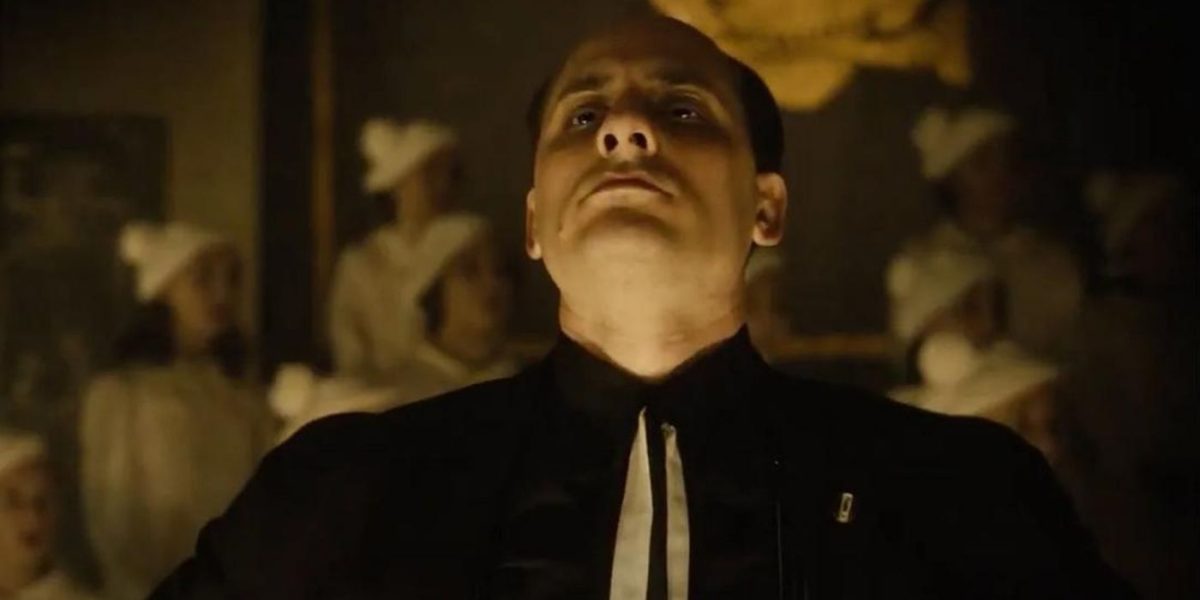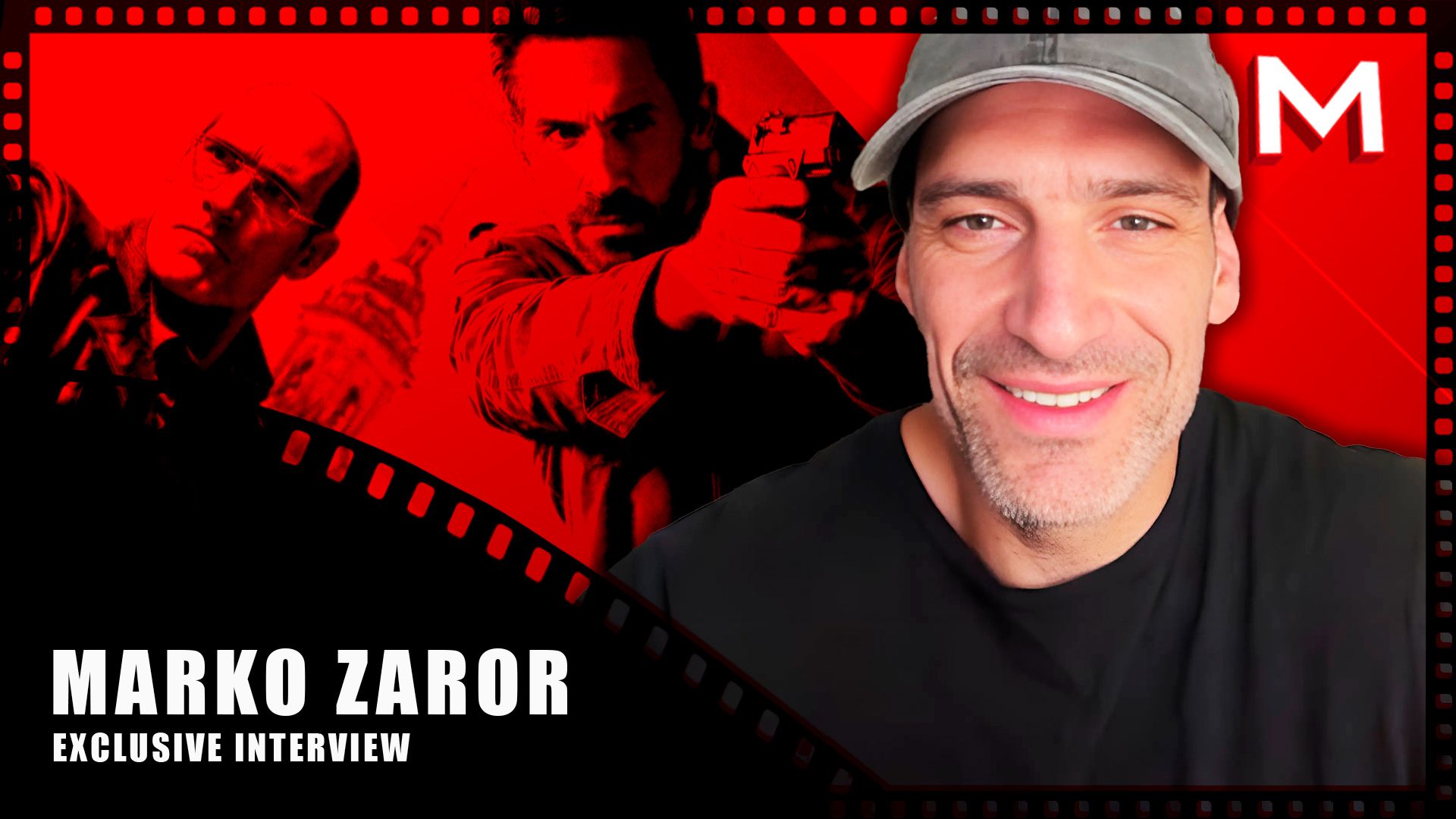
‘M. Son of the Century’ Review
Sep 20, 2024
There’s an old adage about boiling a frog. Surely you’ve heard it. The premise is that the successful way to boil a frog isn’t to throw the frog into boiling water: it’ll jump out. Instead, one boils a frog by slowly, imperceptibly turning the temperature up, degree by degree, such that the frog doesn’t notice until it’s too late. Modern evidence suggests that this may not be an accurate account of frog behavior, but it isn’t too shabby as a metaphor for how liberal democracies fall prey to the violence and fearmongering of fascism, as evidenced by the rise of the 20th-century strongman Benito Mussolini. In M. Son of the Century, directed by Darkest Hour helmer Joe Wright, audiences can follow the dictator’s rising political career until the fateful speech marking the beginning of his dictatorial reign in January of 1925. Nearly 100 years from that fateful, real-life historical tragedy, the series is a timely and fateful reminder of how fragile democracy can be against the evils of unchecked fascist organization.
What is ‘M. Son of the Century’ About?
Adapting the novel by Antonio Scurati, M. Son of the Century follows the political career of war reporter-turned-dictator Benito Mussolini (Luca Marinelli) from his 1919 establishment of the Fasci Italiani through the fascist assassination of Socialist politician Giacomo Matteotti in 1924 and into the full establishment of Italy’s Fascist era in early 1925. It’s a tale following Mussolini and his rise to power closely, with Martinelli’s scheming thug-who-would-be-King regularly turning to the camera in Richard III-style, breaking the action for revealing looks into his schemes and motives.
Those persistent fourth-wall breaks, where a character turns to and addresses the camera/audience, are a technique that inherently upturns the realism of the fictional world, and is atypical in a series like this. The technique has a deep history in Western fiction, from the choruses of the Greek playwrights to the monologues of William Shakespeare. It’s also persisted throughout film and TV history — mainly in comedies like Mel Brooks’ Blazing Saddles or the Austin Powers trilogy, as well as darkly comedic thrillers or horror entries like David Fincher’s Fight Club or Michael Haneke’s Funny Games. They’re a little more common in stories boasting psychopathic characters, often used to give insight into their unique thinking patterns — consider American Psycho, or Ferris Bueller’s Day Off (I kid… or do I?). This trajectory makes the technique so effective in M. Son of the Century, putting the audience deep inside the fascist mindset.
Luca Marinelli Is Excellent as Mussolini in ‘M. Son of the Century’
Image via Sky Studios
Told in sepia-hued era recreations with modern flair (backed by the Chemical Brothers’ Tom Rowlands score), M. Son of the Century begins with early career Mussolini’s early days as an organizer of youthful violence. It’s clear from the beginning that this is his ethos — in an early scene, Mussolini turns to the camera to say “If you want to make history, start with the people at the bottom,” in this case, a lot of disaffected, mostly male youths, “and arm them.” It’s an ethos that builds as the fascist party ratchets up in power until it controls the whole of Italy. The fourth-wall breaks are key here to set Mussolini’s fascistic mindset. Regarding his thoughts on the fateful murder of the Socialist Giacomo Matteotti, he describes Matteotti as “my exact opposite,” whereas the latter came from wealth and empathized with the poor. By contrast, for all Mussolini’s populist rhetoric on behalf of the ‘people at the bottom,’ he explains that “coming from poverty, I love power. I detest poverty. And I despise the weak.” The smartly written series lands the essence of fascism: power-fetishizing opportunists make pseudo-populist pleas to manipulate the disaffected masses.
Marinelli is excellent as the Italian dictator, with enough tactical smarts and malicious charisma that you believe he could let loose the collective Ids of your angriest, most frustrated, rule-fetishizing neighbors. It’s a series that knows well the connection between the fetishization of ‘The Great Man’ and fascist movements, an explicit project of Mussolini, who early on here turns to the camera and confidently says to the viewer, “Follow me, I’ll make you a fascist.” At the same time, while the series significantly portrays Mussolini’s public face, he isn’t just the self-aggrandizing public face and his inner monologue: he gets anxious, uncertain, jealous, and has revealing moments of vulnerability, too, and they’re also capably captured. The rest of the cast fills their roles well, like the sycophantic Cesare Rossi (Francesco Russo), but the bulk of the series is a deep and intensive exploration of Mussolini first and foremost, around which everything else revolves (perhaps a direct echo of the Italian state of the Fascist era).
At times, the series is a little too stylish for its own good. Some scenes feel confined to an artificially small space due to effects considerations, and certain choices are a little too gleefully on the nose. While the score is always excellent, the series occasionally pulls from songs that feel too much like an over-explained joke. Case in point, one key scene sees Mussolini score a major political victory, stretched out via cuts to a B plot, all set to Elvis Presley’s “Can’t Help Falling In Love.” There’s a clever aspect to the use of the song to reflect his growing influence, but, by the end of the sequence it feels too stretched out, too emphasized, and too blunt a carrier of meaning. Elements like these rarely detract fully from the series’ power, but it’d be better here with restraint.
Altogether, the series is a strong showcase of how democracies die in the face of fascism. There’s a lot of blame to go around in 1920s Italy, from failures in the press to identify the threat to religious institutions that kowtow to fascism for their own oppressive priorities. Key blame is placed on the weakness and cowardice of non-fascist politicians who flinch in the face of opportunities to check the rising fascist tide. Mussolini’s a tyrant, weaponizing the animosity of the discontented and gleefully peddling lies, libel, and lambasting perceived enemies, promising vicious retaliation if votes or democratic institutions don’t go his way. As he puts it, “I believe that categories no longer exist. Socialist, Catholic, Bourgeois. There are only those who are with me, and those against me,” to which he adds after a little grandstanding, “it’s not worth it, because those who are with me, tend not to love those against me.” These are all classic strongman tactics that fuel the successes of fascistic far-right movements, and it’s sobering to see their influence in contemporary political campaigns in various countries across the globe.
‘M. Son of the Century’ Is An Entertaining, If Frightening and Unsettling, Alarm
Image via Sky
Plato’s Republic, one of the foundational works of political philosophy in the Western canon and likely his most influential dialogue, is a detailed discussion of topics pertaining to justice, the virtues, and the good life and society. The work posits Socrates in a series of dialogues with various interlocutors, hammering out thoughts on one topic or another as it builds towards a picture of its target. The most difficult debate in the piece is between Socrates and the sophist Thrasymachus, who defines justice as whatever is advantageous or beneficial to the stronger. It’s one of the most difficult conversations in any Platonic dialogue, and many have debated Plato’s success in satisfactorily resolving this challenge. In part, this is because a force hell-bent on ruling by any means necessary, crushing all opposition beneath its boot, cannot be reasoned with towards the good (sorry, Socrates), persuaded to be kinder, or loved into wholeness. Against a totalitarian ideology that threatens to destroy all obstacles in its wake, the only way forward is to absolutely and unequivocally check its power forever lest it come back angrier.
M. Son of the Century’s most powerful legacy is to show that Thrasymachus’ ethos fuels fascist movements. Fascism, Mussolini explains towards the end, is “the rule of force. It’s the will of a few imposed on the will of many. It’s oppression. It’s free will, it’s the law of the strongest.” Mussolini takes up Thrasymachus’ challenge to say, in effect, that justice is dead: the rule of force prevails, and with it Italian democracy. Like Plato’s Socrates, political business as usual in 1920s Italy couldn’t answer that challenge, leaving Mussolini’s fascist forces to take over and enact their terrible rule, and Mussolini loved that political impotence. “Democracy is beautiful,” he says, here. “It gives you a lot of freedom, even the freedom to destroy it.”
M. Son of the Century is a powerful and terrible warning in an era where far-right and neofascist powers are on the ascent in many countries worldwide. Mussolini tells a supporter “This is the last time we’re holding elections,” almost verbatim the words of a current U.S. political candidate who rose to power fomenting similar hatred towards democracy and antipathy towards the vulnerable. It’s a harrowing series, centered around a strong central performance, that needs to be seen, starkly reminding us that it’s never too late to be bold and stamp out fascist tendencies… until one day it is.
M. Son of the Century premiered at the Venice International Film Festival and will air on Sky Atlantic in 2025.
Publisher: Source link
This New Documentary Is a Dark Look at Fame, Fandom, and the Career of Eminem
Fandom is a tale as old as time. For as long as there have been artists, creatives and leaders of any sort, there have been people who admired them and looked to them for guidance on how to live their…
Aug 11, 2025
Zach Creeger Drops Mass Destruction Bombs Of Creepy Terror In Spine-Chilling New Horror
Electric, terrifying and hypnotically creepy af, writer/director Zach Creeger’s latest psychological horror, “Weapons,” dips its toe into the unknowable on many levels. Who are your neighbors? Who are the people in your community? And how can you properly articulate the…
Aug 10, 2025
Buckley’s Life Is Put On Display, Only For The Documentary To Fail To Capture Him
It's Never Over, Jeff Buckley never lets us forget that the man, the myth, and the subject of this documentary, Jeff Buckley, was an unknowable enigma. The feature-length exploration of his too-short life ultimately fails to understand him, despite its…
Aug 10, 2025
Conrad Is Suffering, but I’m Having the Time of My Life
Editor's Note: The following contains spoilers for The Summer I Turned Pretty Season 3 Episode 5.I'll be honest: I didn't really get into the second season of The Summer I Turned Pretty until everybody got to Cousins Beach and the…
Aug 9, 2025











